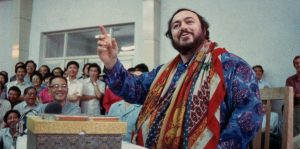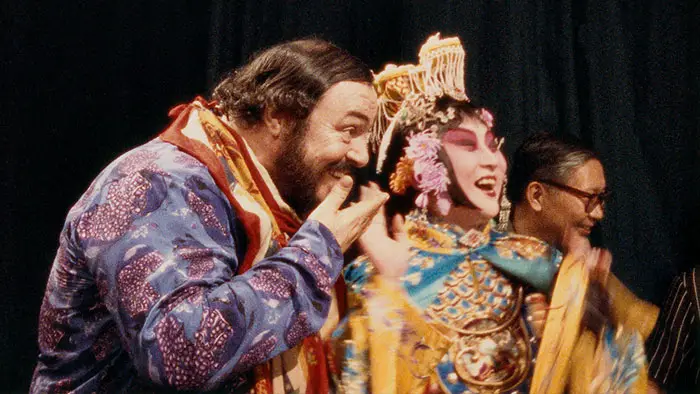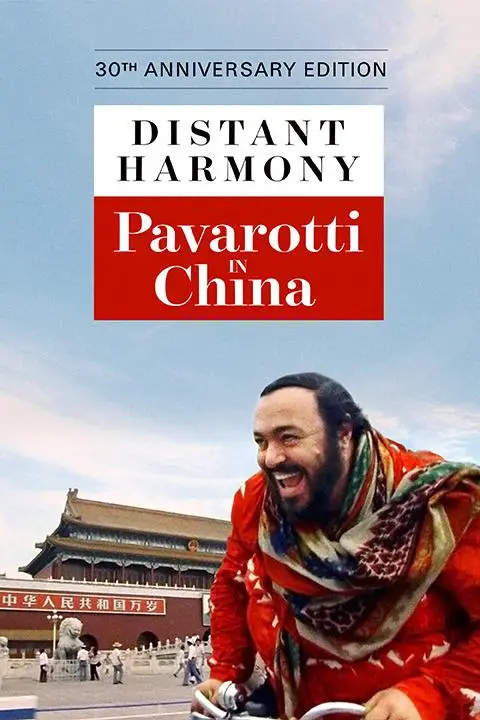
In recent years, the relationship between China and the West has become so tense that some would argue that we’ve entered into a “second Cold War.” To Westerners, China is an oppressive, authoritarian state that doesn’t care about things like human rights, freedom of speech, and democracy. Conversely, Chinese people view Westerners, particularly Americans, as lazy hypocrites whose talk of “human rights” is simply soft imperialism.

“…symbolized the opportunities for learning and growth that the West and China saw in one another.”
As hard as it might be to believe, however, it wasn’t so long ago that China and the West were eager to learn from each other. In 1986, the Italian tenor Luciano Pavarotti was invited to Beijing, wherein a textbook-worthy example of cultural exchange, he gave concerts, toured the Forbidden City, and held master classes. American filmmaker DeWitt Sage chronicled the entire trip in Distant Harmony: Pavarotti in China, a documentary that was recently re-released for its 30th anniversary.
Although it nowadays seems like a historical footnote at best, Sage convincingly shows us why Pavarotti’s trip mattered. Occurring just a few years after Deng Xiaoping reopened China up to the world, Pavarotti’s tour symbolized the opportunities for learning and growth that the West and China saw in one another. As one Chinese official notes in the film, moreover, state media broadcast Pavarotti’s performances to some 200 million people, and his singing undoubtedly inspired a considerable number of Chinese kids to pursue a career in music.

"…Distant Harmony ends up being a surprisingly poignant experience."

